Wildlife Encounters: Ethical Safari Experiences in Africa

Picturing the majestic lions, elegant giraffes, and towering elephants in their natural habitat is enough to stir the wanderlust in any traveler’s heart. Yet, as we seek those breathtaking moments where nature’s drama unfolds before us, it’s essential that our pursuit doesn’t become a threat to the very wonders we cherish. The excitement of an African safari comes with a critical choice—engaging with operators who share a commitment to the principles of ethical wildlife tourism. It’s about finding those extraordinary adventures that not only promise unforgettable sights but also contribute positively to the conservation of wildlife and the well-being of local communities. Let’s see how we can satisfy our quest for the wild without compromising our ethics, promising adventures that are as kind to the environment as they are exhilarating. Keep your binoculars at hand and your conscience clear, as we prepare to uncover how to choose a safari experience that truly earns the ethical badge of honor.
Addressing the Great Dilemma: Are Safaris Ethical?
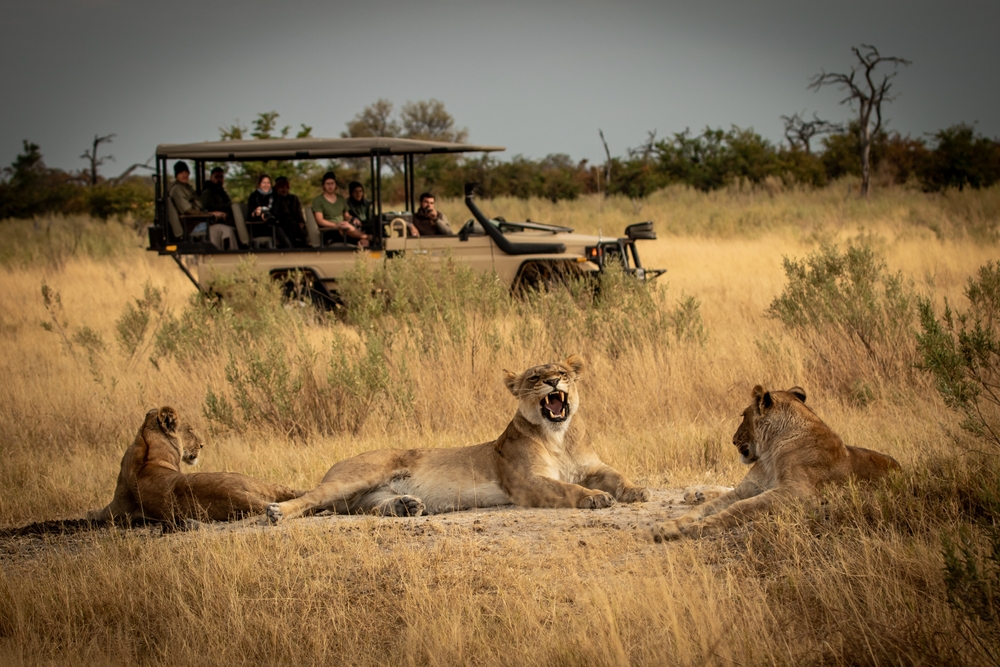
Inquisitive minds have raised the question: can the thrill of an African safari coexist with the principles of ethical wildlife tourism? It’s a conundrum that weighs heavily on the hearts of conservationists and animal lovers alike. On one hand, safaris can offer enriching experiences that foster a deeper appreciation for nature. On the other, if not managed responsibly, they can interfere with animal behaviors and ecosystems.
- Pros: Safaris raise awareness about wildlife conservation, boost local economies, and fund anti-poaching initiatives.
- Cons: Some safaris can be invasive, disrupt natural habits, and prioritize profit over animal welfare.
But, fear not, fellow wildlife enthusiasts! It is entirely possible to engage in safaris that support and respect the delicate balance of Africa’s ecosystems. The key lies in choosing experiences that are both awe-inspiring and responsible, ensuring we leave behind nothing but footprints and take away only memories and a beckoning call for preservation.
Promoting Ethical Safaris
So, how do we participate in safaris that align with our values? The pursuit of an ethical safari starts with seeking out and supporting operations diligently working towards:
- Sustainability: They implement practices to sustain wildlife populations and habitats.
- Animal Welfare: Their interactions with wildlife are respectful and non-intrusive.
- Community Involvement: Local communities are engaged and benefitted through conservation efforts.
Thrilling encounters await, but they are coupled with the significant responsibility of making informed choices. As we venture out to witness the magnificent dance of the wild, are we prepared to do so conscientiously? Stay tuned, as we’ll soon explore how to pick a safari that wins the ethical stamp of approval.
How to Choose an Ethical Safari in Africa
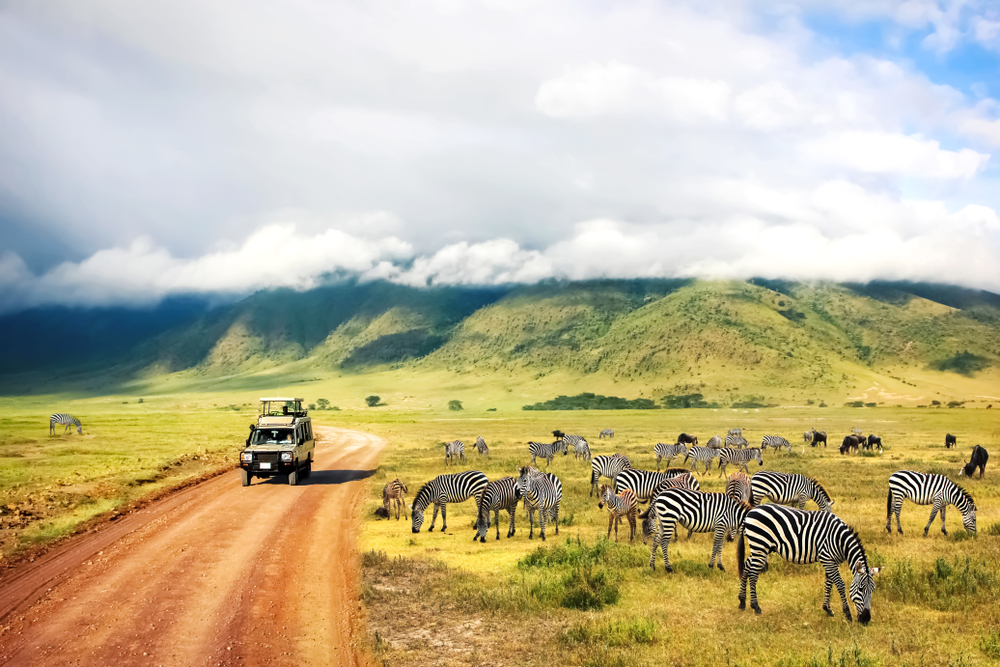
Embarking on a safari sparks the imagination with visions of wild landscapes and close encounters with nature. But amidst the excitement, it’s vital to pause and acknowledge the impact our presence has on these ecosystems. Choosing an ethical safari isn’t just a preference; it’s a responsibility that speaks volumes about our stewardship of the planet. So, what exactly should you look for to ensure your safari treads lightly on African soil, honoring both its wildlife and local communities?
Recognizing Ethical Initiatives
“We don’t inherit the earth from our ancestors, we borrow it from our children.” This Native American proverb resonates deeply when selecting a safari operator who aligns with ethical principles. But how can you distinguish the commendable from the pretenders?
- Conservation Involvement: Look for safaris actively engaged in conservation efforts, such as habitat restoration and wildlife protection. Organizations like the AfriCat Foundation boldly stride to preserve the wild cats of Namibia, turning former hunters into protectors.
- Community Empowerment: Ethical safaris are those which empower local communities. For instance, Saruni Rhino in Kenya channels a portion of its revenue into community projects and anti-poaching patrols, showing that tourism can fuel positive change.
- Eco-friendly Practices: Seek out safaris that embody principles of eco-tourism with minimal environmental footprints. Solar power, water conservation systems, and waste reduction measures are just a few green flags of an ethical expedition.
It’s these genuine initiatives that paint a safari not just as a holiday, but as a helping hand extended to Mother Nature. But implementing ethical practices is a constant journey. Ready to witness how your African adventure can contribute to a larger narrative of conservation? The majestic wildlife you’re hoping to encounter on your journey beckons—are you prepared to meet them responsibly? In our next exploration, discover the iconic animals that make the African wilderness their home.
Meet Africa’s Majestic Wildlife
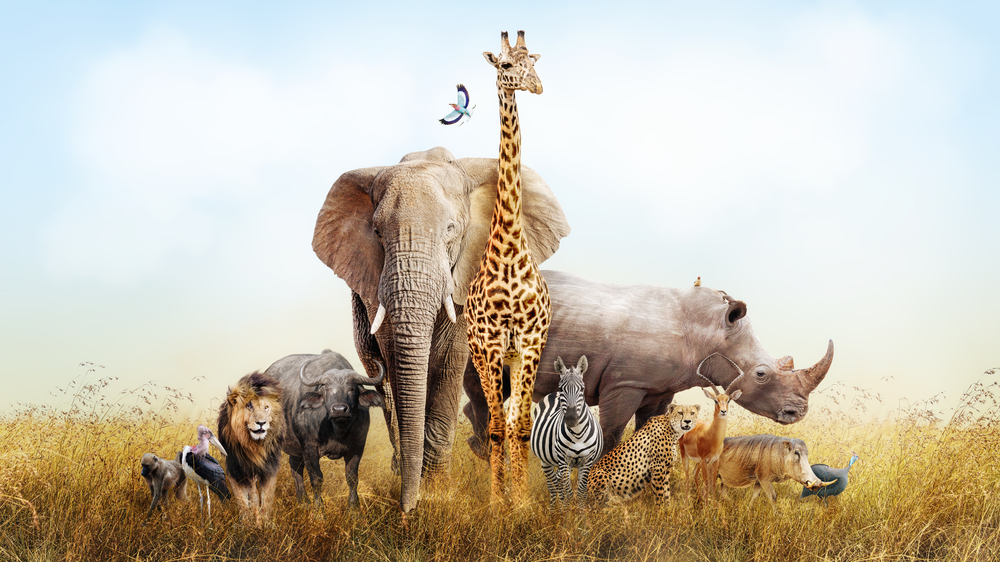
Picture this: a sea of golden savannah punctuated by acacia trees, while a gentle breeze carries the distant roar of a lion. An African safari is more than just a journey; it’s the chance to witness the theatre of the wild. But, who are the stars of this show? Let’s introduce you to the awe-inspiring cast of Africa’s wilderness.
The ‘Big Five’ and More
They’re famous worldwide and on many adventurers’ bucket lists; the ‘Big Five’—lions, leopards, elephants, rhinos, and Cape buffalo—are the jewels in Africa’s crown. Each one of these magnificent creatures commands the landscape in their own unique way:
- Lions: The kings of the savannah, their majestic presence is undeniable. A pride resting in the shade or a male’s silhouetted mane against the setting sun is a quintessential safari vision.
- Leopards: Elusive and solitary, spotting a leopard requires a mix of patience and luck. But the sight of one draped over a tree branch is unforgettable and utterly majestic.
- Elephants: Gentle giants wandering in family herds. The wisdom held in their ancient eyes and the delicate care they show their young can fill any observer with wonder.
- Rhinos: Prehistoric in their stature, both black and white rhinos are a testament to Africa’s timeless nature. Witnessing them is a privilege, especially with poaching threatening their existence.
- Cape Buffalo: Often misunderstood, these robust animals have a complex herd social structure and can be surprisingly protective and brave.
But the Big Five are merely the headline acts. The supporting cast is equally enthralling—zebras with their hypnotizing stripes, giraffes gracefully navigating the tree tops, and warthogs trotting with their distinctive tails up. Not to forget the vibrant birdlife, from the lilac-breasted roller to the eerie call of the fish eagle, painting a dynamic backdrop to the African terrain.
A safari isn’t just about the animals you recognize; it’s also an opportunity to learn about less famous but equally fascinating species. Wildebeest, impalas, and gazelles often play unsung heroes in the circle of life, while the spotted hyena and African wild dog bring to life the raw survival instincts that govern the land.
“In the end, we will conserve only what we love; we will love only what we understand; and we will understand only what we are taught.” – Baba Dioum, Senegalese forestry engineer. This quote especially rings true when you’re inches away from a powerful tusker or listening to the soft grunt of a rhino. It’s moments like these that turn interest into passion and passion into a dedication to conservation.
Have you ever imagined locking eyes with an apex predator or marveling at the cooperative hunting of a pack of wild dogs? The anticipation of what you might see next turns every safari into a gripping, unpredictable live event. And as the sun dips below the horizon and the nocturnal symphony crescendos, you might wonder, “What else does this ancient land have in store?”
Stay with us to explore the safety of these adventures in our next segment. Can close encounters with wildlife be as secure as they are thrilling? We promise to unravel the mystery of staying safe while embracing the raw beauty of Africa’s wilderness.
Are Safaris Safe?
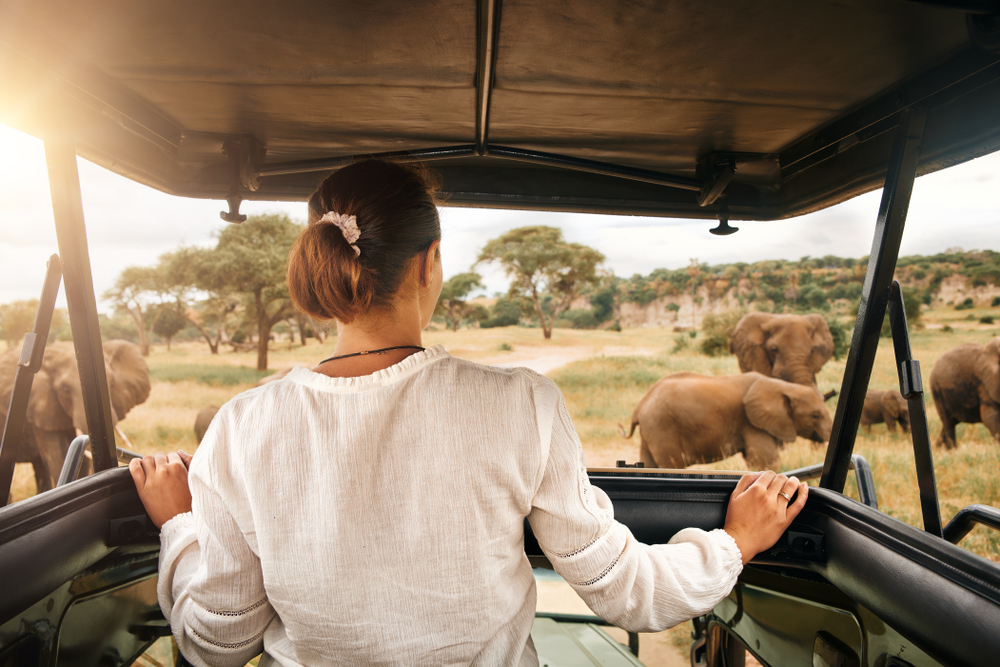
From the wild grasslands of the Serengeti to the delta waterways of Okavango, the allure of the African safari beckons to the intrepid traveler. But amidst this excitement, a tingling question often prickles at the back of your mind: “Are safaris safe?” Let me reassure you, with proper precautions, they can be remarkably safe experiences you’ll treasure for a lifetime.
Following the Guide’s Instructions
Staying safe on safari is largely a matter of respecting nature and understanding your place within it. To ensure your safety and that of those around you, every step you take depends on the seasoned expertise of your guide. The instructions they give are more than just advice; they are the golden rules of safari safety:
- Stay in the vehicle during game drives: The wildlife is accustomed to the shape and presence of safari vehicles, but not to humans standing alone.
- Listen and watch for signals: Your guide is trained to read the subtle language of the bush. A raised tail, a low growl, or a mock charge can spell the difference between a thrilling encounter and a precarious situation.
- Don’t feed the animals: It’s not just a rule for petting zoos; feeding wildlife can alter their natural behavior and make them lose their inherent wariness of humans.
- Keep noise to a minimum: Loud noises can provoke animals and disrupt their natural behaviors, ruining the experience for everyone.
- Know your safe zones: Whether it’s the lodge or a specifically indicated area, knowing where it’s safe to walk without an escort is crucial.
“There is something about safari life that makes you forget all your sorrows and feel as if you had drunk half a bottle of champagne — bubbling over with heartfelt gratitude for being alive.” – Karen Blixen
Modern safaris are crafted with your security in mind, relying on years of experience and advancements in understanding animal behavior. In fact, reputable safari operators now boast safety records that rival any other form of travel.
But perhaps you’re pondering, “Just how close will I get to the animals, and what happens if they come too close?” That’s a totally valid concern. The truth is, wildlife can approach your vehicle, offering heart-pounding, close-up encounters. Yet with your guide’s expertise, these moments become thrilling insights into the natural world rather than perilous close calls.
It’s this balance of excitement and safety that makes safaris not just a trip, but an adventure. And the next leg of your journey into understanding safaris is just as crucial as the rest. Ever wondered where you can confirm all this information and dig even deeper into the heart of responsible travel? Stay tuned, as we’re about to reveal some of the best resources out there that will help guide your steps to an ethical and unforgettable African safari.
Where to Find Reliable Information
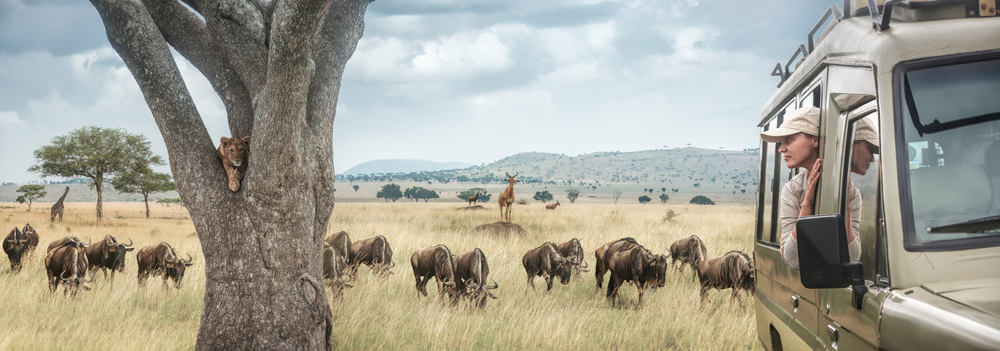
Embarking on an African safari is a commitment to experiencing the majesty of nature firsthand. But with that commitment comes the responsibility of ensuring your adventure respects the wildlife and supports conservation efforts. One piece of that commitment puzzle is knowing where to turn for trustworthy information that can guide you in making informed choices about your travel.
Recommended Websites
In today’s digital world, the wealth of information at our fingertips can be as overwhelming as it is empowering. To cut through the noise, I recommend a select few resources that stand out for their dedication to promoting ethical wildlife encounters. For starters, Go2Africa’s African Travel Blog on Ethical Animal Encounters is an essential read for anyone interested in responsible tourism. Here you’ll find a trove of articles that not only inspire but also educate on the principles of ethical wildlife tourism.
Another gem is the insight provided by Alluring Africa, which shines a light on close wildlife encounters that are ethical at their core. They offer narratives and guides that help you understand how your travel choices make a real-world impact on conservation efforts.
Finally, the Go2Africa’s African Wildlife Experiences is a showcase of the marvels that await while also driving home the importance of choosing ethical experiences that help, rather than harm, the majestic creatures you’re there to witness.
Armed with the right information, you are one step closer to crafting a safari experience that aligns with your values and contributes positively to the preservation of Africa’s wildlife. But the question remains, how will your safari choice influence the bigger picture?
Stay tuned. In our next and final piece of this safari tapestry, we reveal how your adventure can extend beyond mere memories, transforming into a force for good that echoes across the savannas and wildlife preserves of Africa. Are you prepared to be not just a traveler, but a conservation ally?
Make a Difference with Your Safari Adventure
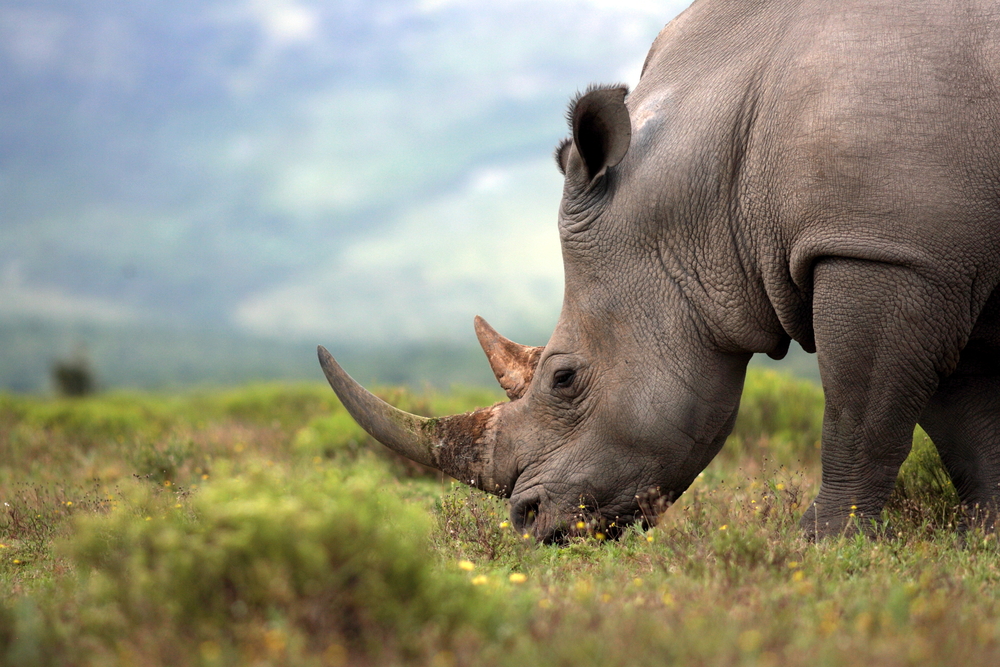
Imagine boarding a plane knowing that your journey ahead isn’t just about the thrills and the photo ops. Rather, it’s about stepping into a world where every action you take has the potential to leave a positive footprint on the natural habitats you’re set to explore. Choosing an ethical safari experience transforms your trip into a purposeful odyssey, one where your presence contributes to the beating heart of Africa’s conservation efforts.
Contributing to Sustainability
Every ethical safari you opt for is a vote for sustainability. It’s a choice that resonates with the rhythms of the wild and the communities that preserve them. Take, for example, the camps that employ locals, providing vital income and a powerful incentive to protect wildlife. Or consider how your travel fees help fund anti-poaching patrols – those silent guardians who stand between the majestic giants and threats unseen.
But the ripples of your decisions spread even wider. Initiatives like community-based tourism, where villagers share the revenue from your stay, exemplify how your adventure fuels the local economies and education, creating a symbiotic relationship between tourism and preservation.
An Adventure with Purpose
Your footsteps on the soft earth of the savannah can be more than just memories etched in time; they can signify the change you’re part of. Imagine learning as you go, witnessing how meticulous wildlife tracking aids in research and conservation, understanding the significance of each species in the ecological tapestry. These are adventures laced with purpose – a thrilling sojourn that’s simultaneously an investment in our planet’s future.
And this isn’t based on mere sentiment. Research shows that ethical tourism can lead to the recovery of endangered species, as seen in the rising numbers of mountain gorillas due to regulated, sensitive tourism practices. When you’re engaged in an ethical safari, you’re walking a path others will gladly follow, one that ensures these wonders persist long after we’ve departed.
Conclusion: A Forward Step Towards Ethical Tourism
As the sun sets on your African safari experience, know that the twilight brings hope for a new dawn in ethical tourism. Each ethical decision you make, from the tour operator you select to the souvenirs you purchase, carves out a legacy that extends far beyond the horizon.
Your journey can be a testament to the symbiotic relationship we can foster with nature. With every tour booked, we’re collectively taking strides towards a more ethical form of tourism, ensuring the memories we carry back home are matched by a brighter future for the wildlife and communities that have become a part of our story. Because, after all, the true essence of travel is discovering how interconnected we all are, and how each choice we make can celebrate and safeguard the wonders of our world.